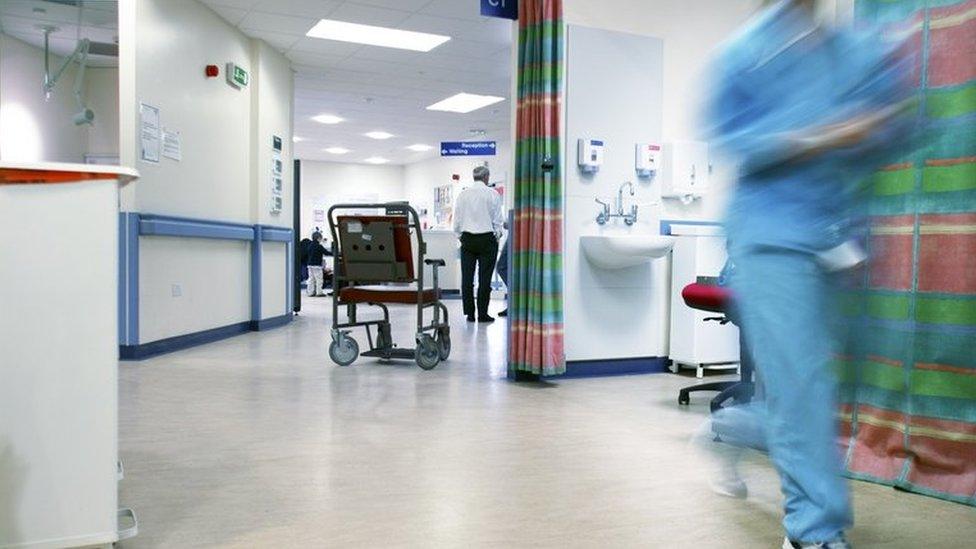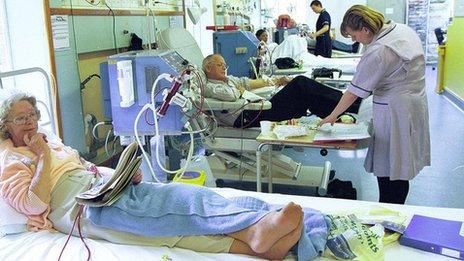Concern as 130,000 patients 'boarded out' in Scots wards
- Published

Concerns have been raised about the practice of "boarding out" patients in Scotland's busy hospital wards
More than 130,000 patients have been "boarded out" from wards in Scotland's hospitals over the last two years, Scottish Labour has claimed.
The party produced freedom of information requests showing patients had been moved out of specialist wards.
Researchers say the practice of moving patients out of busy wards can increase the risk of infection and prolong patients' hospital stays.
The Scottish government said it was working to reduce the practice.
Labour's figures showed 130,559 patients had been moved into other wards, although the true total could be higher still as five health boards, including Tayside and Grampian, did not provide figures.
Dundee University researchers examined the practice in 2013, voicing fears that a reduction in bed numbers and a rise in hospital admissions was making the practice more common.
'Hugely concerning'
Scottish Labour said the figures "show the huge strain our hospitals are under", and called for more investment in social care.
Public services spokeswoman Jackie Baillie said: "These figures point to huge levels of stress in our hospitals.
"This information suggests that too often there isn't enough space for patients to be treated in the appropriate ward. That is hugely concerning.
"We know from the SNP government's own research that treating patients in the wrong ward is more likely to increase patient risk. Questions have to be asked of Health Secretary Shona Robison about what she is doing to deal with this."
A spokesman for the health secretary said a "proactive approach" was being taken to tackling the issue.
He said: "We recognise that peaks in demand may require use of beds flexibly at times, however we are working to ensure that NHS boards are managing their capacity and ensuring that patients are admitted to the right beds at the right time with the right staff.
"Key elements of our work to reduce boarding include freeing up capacity and easing pressure across the system. For example, our investment of £100m over three years in reducing delayed discharge is already seeing real results with a 13% reduction in bed days lost to patients ready to go home."
- Published25 February 2015

- Published29 July 2013
